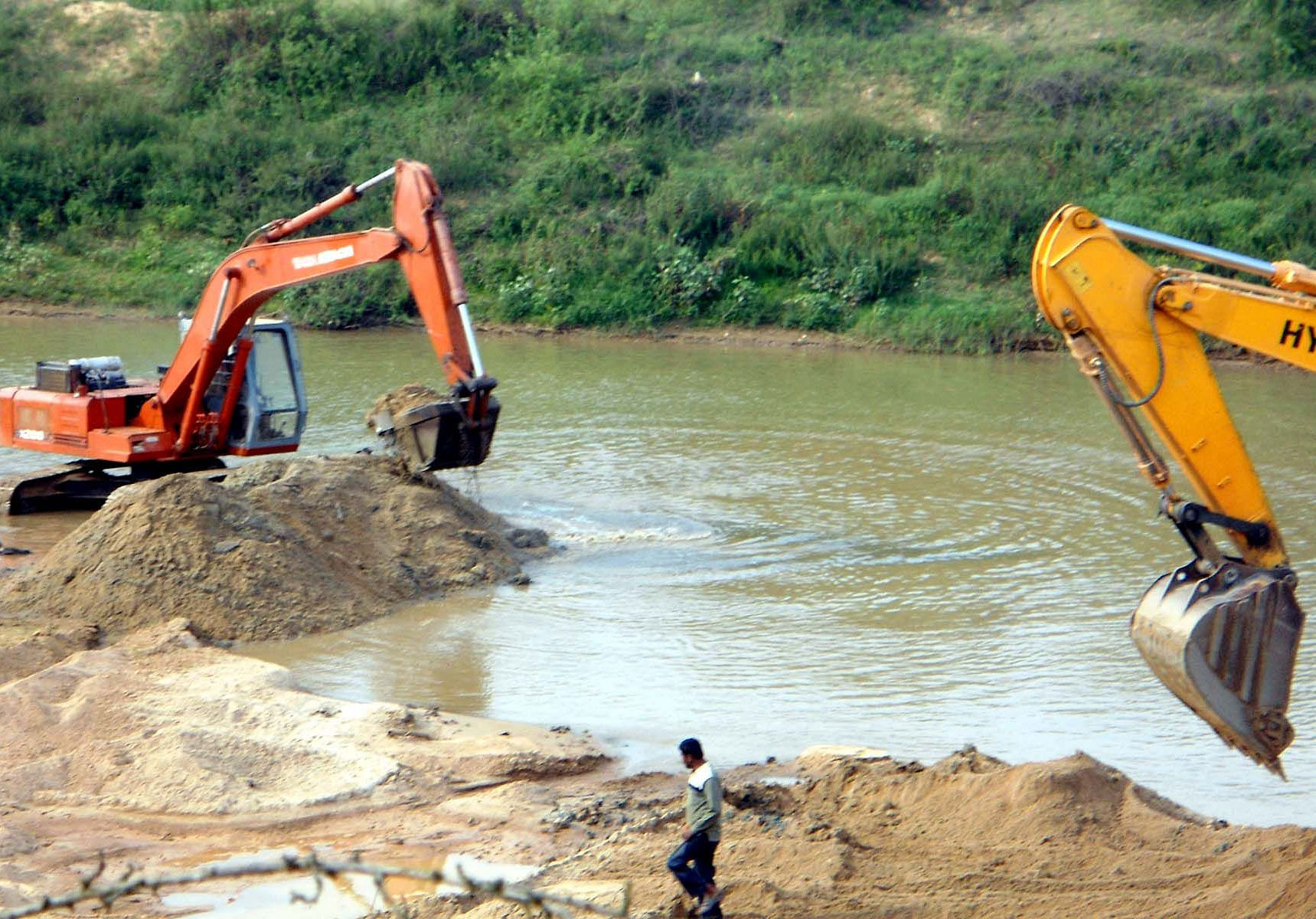Last Updated IST

To come into effect from January 1, 2016, the new policy comes with a tamper-proof surveillance system under which trucks carrying sand would be given bar-coded transit permit printed on MICR (magnetic ink character recognition) paper used by the banking industry in making cheques. DH file photo
The Union environment ministry on Thursday released a draft policy aimed at regulating mining of sand and other minor minerals in a bid to curb corrupt practices.
To come into effect from January 1, 2016, the new policy comes with a tamper-proof surveillance system under which trucks carrying sand would be given bar-coded transit permit printed on MICR (magnetic ink character recognition) paper used by the banking industry in making cheques.
India does not have any record on the amount of sand used in civil construction. But an indirect estimate, made using cement production as a proxy, shows an annual need of more than two billion tonnes of sand. The huge business begets corruption in the absence of proper checks and balances.
“When each sand-carrying truck is given a unique receipt at the exit point, there would be no scope for any wrong doing. The same receipt can't be used over and over again. It will improve the state's revenue,” said union environment minister Prakash Javadekar.
For sand mining in areas up to 5 ha, the permission would be given by the district administration. If the lease area is up to 50 ha, the permission would come from the state government whereas central clearance is needed only if the lease area is bigger than 50 ha.
While green clearance is needed, the draft policy has a new provision for cluster-wise approval under which environmental impact assessment can be obtained for a group of small players instead of having EIA approval for each one.
Besides sand, the policy is applicable to gravels, marble, granite and soil needed in brick kilns. Asked if big firms can use these smaller units as a front to monopolise sand mining business, he said, “Many states use auction route for awarding the lease. I think the wisdom will prevail.”
To come into effect from January 1, 2016, the new policy comes with a tamper-proof surveillance system under which trucks carrying sand would be given bar-coded transit permit printed on MICR (magnetic ink character recognition) paper used by the banking industry in making cheques.
India does not have any record on the amount of sand used in civil construction. But an indirect estimate, made using cement production as a proxy, shows an annual need of more than two billion tonnes of sand. The huge business begets corruption in the absence of proper checks and balances.
“When each sand-carrying truck is given a unique receipt at the exit point, there would be no scope for any wrong doing. The same receipt can't be used over and over again. It will improve the state's revenue,” said union environment minister Prakash Javadekar.
For sand mining in areas up to 5 ha, the permission would be given by the district administration. If the lease area is up to 50 ha, the permission would come from the state government whereas central clearance is needed only if the lease area is bigger than 50 ha.
While green clearance is needed, the draft policy has a new provision for cluster-wise approval under which environmental impact assessment can be obtained for a group of small players instead of having EIA approval for each one.
Besides sand, the policy is applicable to gravels, marble, granite and soil needed in brick kilns. Asked if big firms can use these smaller units as a front to monopolise sand mining business, he said, “Many states use auction route for awarding the lease. I think the wisdom will prevail.”
Deccan Herald is on WhatsApp Channels | Join now for Breaking News & Editor's Picks